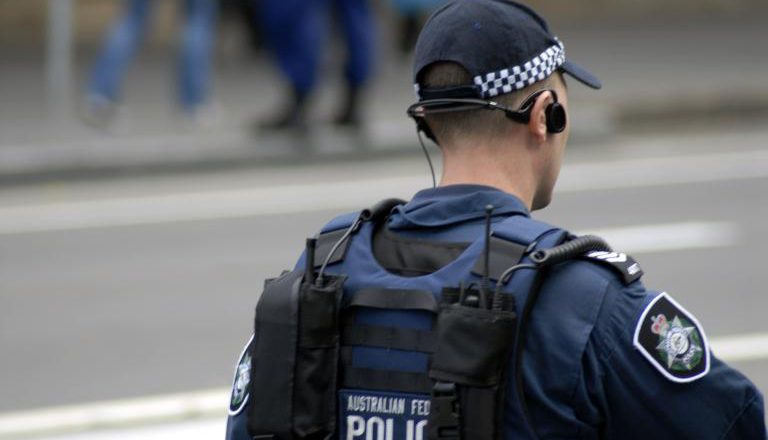
By Alexandra Hurley
On the 14 May 2013 the then Gillard Government finally released its review of counter-terrorism legislation, albeit three years overdue. The report was released on the same day as the budget, and went relatively unnoticed. The Council of Australian Governments’ (COAG) review concerned control orders, preventative detention orders and the unclear definition of “terrorism”. During the review process, organisations and individuals involved in the terrorism law were asked to submit their thoughts. Human rights and law review bodies cited numerous limitations for fundamental human rights and questioned its effectiveness.
The report concerned counter-terrorism powers available to the Australian Federal Police and ASIO. The body of law consists of amendments to the Criminal Code 1995 (Cth) implemented directly after the September 11 attacks and amendments to the Anti-Terrorism Act 2005 (Cth)after the London bombings.
The Australian Federal Police (AFP) and Australian Security Intelligence Organisation (ASIO) maintain the legislation is imperative in the prevention of terrorism. They highlight the fact that during its operation, four terrorist plots have been foiled within Australia. Terrorism is said to be a real and continuing threat to our country, with more than 100 Australians having died in international terrorist related attacks since 2000.
However, critics argue that the legislation was created as a knee-jerk reaction to the perceived imminent threat of terrorism. The body of fifty-four laws has been described by Canadian law Professor Kent Roach as “hyper-legislation”.
Control orders are particularly controversial. They were enacted after the London bombings in the Anti-Terrorism Act 2005 (Cth). They are utilised as a surveillance tool to monitor suspected terrorists, to prevent future attacks. The accused is prohibited from leaving Australia, wears a tracking device and has limitations on their ability to communicate and use the internet. This limits the freedom of movement, freedom of speech and freedom of association, without the accused having committed an offence. This seems to be a disproportionate limitation on fundamental human rights, which are only to be restricted by governments as a last resort.
The most concerning aspect of a control order application is that it is heard ex-parte (without the presence of the accused), and that evidence may be presented against the accused on a hearsay basis. Hearsay evidence is often second hand and cannot be verified, and is normally expressly barred from being accepted as a legitimate source of evidence. The accused is often not informed of all relevant facts in the case against them, due to the sensitive national security content involved in such cases. According to the report, only two control orders have been implemented in Australia, the first on “Jihad” Jack Thomas and the second on David Hicks after his return from Guantanamo. The United Kingdom enacted similar legislation after the 2005 London bombings, but these laws were surrounded by controversy and repealed in 2011.
Even more concerning than control orders are that of Preventive Detention Orders (PDO). PDOs are determined by a judge after an application by a member of the Federal Police to the court. The decision by the judge is outside of normal judicial power. There is no trial, and no offence has actually occurred. It is a determination of the possibility for a future offence to occur, based on hearsay and speculation.
The Law Council of Australia submitted that detention should never be the default position. In recommendation 39 of the report, the Committee recommends that the Commonwealth, State and Territory “preventative detention” legislation be repealed. Suspects detained under a PDO are often prevented from contacting their spouse or parents, so are unable to allay those people’s concerns. Intended to protect issues of national security, this is an unreasonable limitation on the rights of those detained as it causes unnecessary apprehension of the disappearance of the accused by their families. COAG has suggested an amendment which would allow the detained to contact a family member and/or employee, to prevent confusion arising regarding the persons location and safety.
If a government is to violate human rights, the limitation must be proportionate to the intended goal.
The definitions of a “terrorist organisation” and a “thing” related to the furtherance of terrorist activity are unclear and give little guidance to legal practitioners or the accused. These definitions appear thought the legislation and are crucial to understanding offences. The Law Council states that the rushed legislation sheds little light on the “precise elements” of the offences. The legislation is drafted so broadly, that in practice, it is unworkable. In Benbrika and Others v The Queen, the defendant was charged with possessing a CD containing extreme views, connected with preparation for a terrorist act. The Court held that the fact that material was of a kind which could be used to assist in the preparation of a terrorist act, was not sufficient to establish the connection.
Contrastingly, in R v Khazaal Beilal Khazaal, the accused made an e-book containing procedures and methods for assassinating world leaders, and the High Court determined that the content did satisfy the requisite connection element. Here the intention to assist in a terrorist act could be found within the document itself. This provides for a reverse onus of proof, as the mere fact of possession creates a heavy burden of guilt that has to be disproved by the accused. The report found this reverse onus increases the risk of unfair convictions of innocent people. The burden of conviction should normally be placed squarely on the shoulders of the prosecution.
If a government is to violate human rights, the limitation must be proportionate to the intended goal. The United Nations Human Rights Committee (UNHCR) has said that “restrictive measures must be the least intrusive instrument amongst those that might achieve the desired result, they must be proportionate to the interest to be protected.” Counter terrorism legislation is not widely accepted as proportionate. Professor George Williams of the University of New South Wales has described the PDOs as “rotten to their core” and reminiscent of a police state, such as “general Pinochet’s Chile”, rather than the laws of modern democracy. Similarly, leading terrorism law academic, Dr. Patrick Emerton, has highlighted the disturbing nature of a legal regime which allows someone to be imprisoned or detained without any evidence of criminal guilt being led against them in court.
The legal effectiveness of the legislation is questionable. The futility of trying to deter a suicide bomber with life imprisonment seems absurd. The COAG report recognised that terrorism laws probably will not deter a committed extremist from pursuing his or her ideological fanaticism, and they accepted that there is “a lack of well-researched evidence to demonstrate whether or not the terrorism laws have had any impact on radicalised extremists in our urban communities.” Professor Williams has stated that we must be careful not to overstate the role that the law can play in combating terrorism.
There have now been six major reports spelling out the need for reform in counter-terrorism legislation, but still no action. As early as 2009, the legislation, particularly the Anti-Terrorism Act 2005 (Cth) has been the subject of international inquiry. The UNHRC commented on the vagueness of the definition of “terrorist act” within counter-terrorism legislation, and also requested that Australia should aim to “guarantee the right to be presumed innocent”, by maintaining a burden of proof requirement in hearings. The UNHRC requested Australia reconsider the legality of its “power to detain people without access to a lawyer and in conditions of secrecy.”
The issue is whether this feedback from the report and the international community will actually lead to reform.




